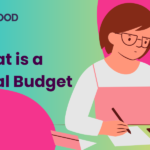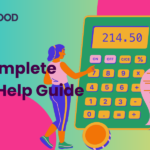Managing personal finances can often feel overwhelming, when it comes to making difficult choices about budgeting, retirement planning, savings, and investments. Although many people understand the importance of getting expert financial advice, hiring a financial advisor can be expensive. Fortunately, there are ways to obtain financial advice for little or no cost, or to locate a free financial advisor. This article explains the resources available to assist you in making wise financial decisions and examines the different methods you can employ to get free financial advice.
Table of Content
Reasons to Consider Hiring a Free Financial Advisor
It’s important to understand why you might need a financial advisor before learning how to find a free one. A financial advisor can assist you:
- Make a financial plan according to your objectives and time period, create a plan to invest, save, and increase your wealth.
- Invest wisely by being aware of your options and choosing the best tactics for your financial circumstances.
- Make sure you’re saving enough money for retirement and choose the right retirement plans and accounts.
- Control your debt by gaining a better understanding of how to effectively pay off debt, including mortgages, credit card debt, and student loans.
- Tax planning is about knowing how taxes affect your savings, investments and how to legally lower your taxable income.
Although financial advisors are knowledgeable in multiple financial fields, traditional financial advising services can be expensive. Fortunately, there are a number of free tools and methods that can help you get financial advice without spending money on them.
Types of Free Financial Advisors
- Non Profit Organizations for Financial Counseling: Those who are in need of financial management assistance, there are a wide range of nonprofit organisations available which provide free financial counselling. Usually, these groups offer tools for basic financial planning, debt management, budgeting, and credit score enhancement. Some of the most well-known nonprofit organisations are as follows:
- National Foundation for Credit Counseling (NFCC): These are Certified credit counsellors who can provide free, one-on-one consultations on subjects like debt reduction, budgeting, and financial planning.
- Consumer Credit Counseling Service (CCCS): CCCS organisations provide free consultations to assist people in making financial plans, paying off debt, and preventing bankruptcy. Numerous organisations that assist people in resolving financial difficulties are certified by the NFCC.
- United Way’s 211 Service: The 211 Service is a free service that links you to financial counsellors, community resources, and financial help programs which works as a free financial advisor. It is best for those who are facing financial difficulties or need help in particular areas, such as preventing foreclosure or filing low-income taxes.
Organisations for Free Financial Planning
Through certain programs, a number of financial planning organisations offer free tools and resources for low cost or free advice.
- Garrett Planning Network: It is a group of financial planners who provide hourly advice. Although the network’s services are usually paid, some of its experts provide free consultations to those with low incomes, particularly during times of crisis or financial hardship.
- Certified Financial Planner (CFP) Board: A list of Certified Financial Planners (CFPs) is available from the CFP Board, and some of them offer free initial consultations. Some planners will provide a free consultation to learn about your circumstances and offer advice. The CFP designation is a well-respected organisation in the industry.
- AARP Foundation: Through its Foundation, AARP provides seniors with a range of free financial counselling services, such as webinars, one-on-one consultations, and access to educational materials regarding debt management, Social Security, and retirement planning.
Free Financial Advisor from Banks and Credit Unions
Numerous financial institutions provide their clients with free financial advice and basic planning services. these institutions acts like a free financial advisor. Ask your bank or credit union if they offer free consultations or financial planning services if you have a checking or savings account with them. Because of their emphasis on the community, some financial institutions like credit unions are more likely to provide free or inexpensive advice.
- Bank Advisors: A number of major banks, including Wells Fargo, Bank of America, and Chase, offer their customers free financial advice. Although they might not be able to provide you with individualised investment advice, these advisors can assist you with general financial planning, debt management, and budgeting.
- Credit Unions: A lot of credit unions offer their members free financial literacy materials and financial advice. This can include retirement planning, debt management, and even mortgage advice.
Online Financial Tools and Resources
There are many websites and apps that offer free financial advice if you feel comfortable using online resources. While some platforms give users access to financial professionals and educational materials which are described below:
- Robo-Advisors: Betterment and Wealthfront are the two free financial advisors that provide free basic financial advice and work as a free financial advisor. In addition to automated portfolio management, these platforms can offer free or inexpensive investment advice, retirement planning, and basic budgeting.
- Personal Finance Websites: A wide range of free financial resources, such as articles, videos, calculators, and financial tools, are available on websites such as NerdWallet, InvestINMood, and Investopedia. These resources can help you get started and understand fundamental financial concepts.
- YouTube Channels and Financial Podcasts: There are a lot of free YouTube channels and podcasts that provide good guidance on personal finance subjects. The Dave Ramsey Show, The Financial Independence Podcast, and The Budget Mom YouTube Channel are well-known examples of free financial advisor.
Free Financial Planning Services
- Many financial planners are prepared to provide their services for free, usually through volunteer work or community initiatives which are aimed at assisting demoted groups.
- Many members of the XY Planning Network provide free services. It is a group of financial planners who focus on working with those who are unable to pay for financial advice.
- Some non-profits, charities, or community organisations may collaborate with financial experts to provide free financial planning services through workshops or events related to financial literacy.
- Local colleges and universities are a great source to get free financial advice. As part of their student training programs, numerous educational institutions offer financial planning or personal finance courses and offer the general public with free consultations. Typically, professors with substantial expertise in the field or certified financial planners manage these consultations.
- Under the guidance of faculty, financial students at certain universities conduct financial planning clinics where they offer free financial advice. The Financial Planning Clinic at the University of Arizona and the Financial Planning Program at the University of Illinois are two examples.
- When looking for financial advice, government resources can be just as helpful as non-profits and educational institutions. Certain government organisations offer free guidance or educational materials on important financial subjects like budgeting, taxes, and retirement planning.
- Guides to investing, retirement savings, and preventing fraud are among the free resources provided by the U.S. Securities and Exchange Commission (SEC). Additionally, they manage the Investor.gov website, which provides free resources and training.
- The Financial Literacy and Education Commission is a government agency that offers instruments and resources to raise financial literacy in the US. They provide links to numerous free financial education initiatives supported by the government.
- A lot of community initiatives and local governments provide their citizens with free financial advisor. Workshops on financial literacy, debt counselling services, and even one-on-one meetings with financial counsellors are examples of this. These services may be provided for free or at a minimal cost by neighbourhood libraries, community centres, and social service organisations.
How to Maximise Free Financial Advice
While getting free financial advice is a good place to start, it’s crucial to make the most of these resources. The following advice will help you get the most out of free financial advising services:
- Be Ready: Bring all of your financial documents and inquiries in the meeting with financial advisors, whether it be in person, online, or over the phone. The more organised you are, the more it will help you.
- Establish Specific Objectives: Determine your financial objectives in advance, such as debt repayment, retirement savings, or home ownership. This will enable the advisor to better customise their recommendations for your particular circumstance.
- Make Notes: Make notes on the resources and guidance you receive, whether you’re reading a blog post or participating in a one-on-one session. This will make it easier for you to recall important details and apply the advice more successfully.
- Research: Develop a basic understanding of personal finance using the free resources and guidance, but never be afraid to conduct additional research. You can delve deeper into the subjects that are most important to you because free advice might not cover everything.
Conclusion
It is possible to locate a free financial advisor or obtain financial advice without having to spend a lot of money. To improve your financial health, you can analyse a lot of financial advice by utilising community resources, online tools, educational programs, and non-profit organisations. Free financial advice can enable you to make wise decisions that result in financial success, regardless of whether you need assistance with retirement planning, investing, saving, or budgeting. By doing your homework, and considering all of your options, help you in making the most of the resources.



